Children of the Knight, Michael J. Bowler [classic book list txt] 📗
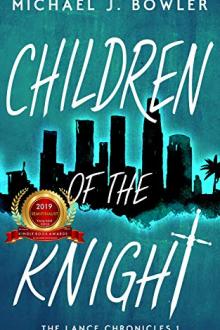
- Author: Michael J. Bowler
- Performer: -
Book online «Children of the Knight, Michael J. Bowler [classic book list txt] 📗». Author Michael J. Bowler
Arthur galloped toward the gesticulating man and pulled in Llamrei’s reins. There was a ramp leading up into the boxcar, and the man was gesturing wildly for them to go up. “Hurry, man, ’fore the cops see you!” And he winked.
Arthur grinned before trotting the frothing horse up into the boxcar and into the cool shadows within. Instantly, the ramp was pulled up, and the heavy sliding door slammed shut.
Within the silence of the boxcar, Llamrei’s heavy rasping was the only sound. Arthur and Lance looked soberly at one another, and Arthur patted the trembling boy on one shoulder. Then he lovingly stroked Llamrei’s neck, calming the animal with his touch.
Lance heard voices outside and lots of feet tromping on the dirt around the railroad track.
“Did you see a guy on horseback?” a voice asked.
“Sure as hell did,” the trainman replied. “Damnedest thing I ever saw. Imagine that, a—”
“Which way did they go?” the first voice interjected.
“Up that way,” the trainman replied. “Toward Myers. Say, what’s goin’ on, officer?”
Lance had no idea what “Myers” was, but the cops seemed to know because the heavy footsteps pounded off, and stillness returned. Lance’s shadowed face reflected the dread gripping his heart, and Arthur grinned to reassure him.
In a few moments, the heavy wooden door slid back and the trainman’s swarthy face appeared. He grinned, showing a front tooth missing. “Sent ’em north. You guys better head south and lay low somewheres.”
He lowered the ramp and stepped back to watch Llamrei trot down to the dirt ground outside.
Lance both gazed in wonder at their savior, baffled as to why he’d helped. “Ye have my gratitude, sir,” Arthur told him with great deference. “We be in thy debt.”
The man waved the thanks away. “No, I’m in yours, King Arthur. I seen you on TV and what youse gonna do, and I’m all for it.”
Arthur smiled. “Thank you.”
The man grinned and reached up to grab Lance’s hand. “And I wanna shake your hand, Sir Lance, ’cause what you said near cut my heart out. What a great kid ya got there, Arthur.”
Lance blushed and looked down in embarrassment.
“He be the greatest I have ever known,” Arthur confirmed, flicking a pride- filled look back at Lance, who smiled and nodded his thanks. Arthur turned back to the trainman. “Your name be, sir?”
“Walter Mills, at your service, King Arthur. You ever got use of a train, my friend, just look me up.” He grinned a moment and then glanced back nervously over his shoulder. “You best skedaddle. They might come back.”
“Good night, Master Walter.” He turned Llamrei and trotted around behind the railroad cars to walk along the river side of the tracks, just in case more police came snooping around.
Lance knew they’d soon find a way down into the riverbed where they could enter the storm drains, where they’d be safe.

The setting sun bathed Esteban’s neighborhood in shimmering auras of red and gold as Ryan and Gibson stood in the middle of the street near the building with the mural. Behind them, billowing clouds of smoke from the flaming police cars still reached skyward to clutch futilely at the vanishing sun. Both men gazed around the area in shock. The local residents, having calmed down after Arthur’s escape, now stood with them.
“This is what they did all day?” Gibson exclaimed, unable to believe his eyes.
“Sí,” said a young woman clutching her two children to her side. Everyone else nodded, including the elderly abuelita with the rolling pin.
“Hellfire!” Ryan glanced again at the renovated homes and businesses and the energized people, and simply couldn’t believe his eyes. Who the hell was this Arthur guy anyway?

City Hall was one of the most famous buildings in Los Angeles. An imposing edifice, its art deco styling and impressive thirty-two-story tower and Romanesque archways made it almost like going to a movie set for anyone ascending the massive flight of steps and entering the historic landmark. It served as home base to the mayor of Los Angeles and the Los Angeles City Council.
As city lights twinkled all around the building, Mayor Villagrana and Police Chief Murphy sat in the mayor’s lavishly appointed office in front of a large, flat-screen TV. They watched with irritation as Helen Schaeffer spun the pizza parlor standoff with gusto on Channel 7 News.
Villagrana was in his second term, a career politician who’d actually begun his career in San Francisco, and had become memorable for his obsessive photo ops and expensive travel extravaganzas. Middle-aged, of Mexican descent, handsome, and photogenic, Villagrana knew he hadn’t done anything substantive for the residents of LA during his six years other than raise water rates and trash collection fees, but the cameras loved him and that’s what mattered. Politics was much like Hollywood – appearances were always more important than substance. Fortunately for Villagrana, there had been no major disasters or calamities to shake up his tenure in office.
Until Arthur.
LAPD Chief Murphy had been promoted up the ranks, having spent his entire adult life with the Los Angeles police department. He was quiet, introspective, middle-aged man with a balding pate and bushy eyebrows who usually kept enough order that Villagrana didn’t look bad in the press.
“Yeah, I got it on right now,” Villagrana barked into his phone. “Yes, the chief’s with me. For once we agree. I’ll tell him.”
He slammed the phone down, glaring at the exploding cop cars and scrambling officers on TV.
“Council Pres, I bet.” Murphy sighed.
“Your men look like idiots out there.”
“What did you expect us to do, start shooting?”
Villagrana glared at him fiercely. “From now on, you do nothing. You don’t do a thing.”
Murphy bristled with indignation. “What? Mr. Mayor, that guy torched five of my vehicles and wrecked four more near the river!”
“You’re lucky he didn’t turn those kids loose on you,” Villagrana retorted. “And it was your own men who crashed the other cars. Now hear me good, Murphy! This guy’s already getting too much public support for you to go muscling in on his parade. Watch him and wait, but don’t interfere. That’s an order.”
Murphy swore to himself, but grudgingly nodded. “You’re wrong, but I’ll do it.”
He shook his head with anger as he stepped from the office, mumbling under his breath, “Bureaucrats!”
Villagrana ignored the dig and turned back to the television, dropping slowly into his lush, leather chair and fixing his eyes on the screen. This Arthur was becoming a media darling, something he could not allow. He pushed the pause button just as Arthur galloped through the smoke and leapt directly toward the camera. He studied Arthur’s face carefully. He liked to know his enemies before he struck.
Chapter 9:
Now Suddenly I Am Somebody
In the days following the first Boyle Heights clean-up, Arthur and his knights repeated the operation in other neighborhoods, fanning outward from various Boyle Heights communities to surrounding areas. The reception in every neighborhood gratified the king. The people not only welcomed Arthur’s help, but also pitched in and worked alongside the kids. Camera crews followed them everywhere, always led by Helen Schaeffer. Arthur liked her and felt comfortable speaking with her, so Helen tended to get far more face time than any other reporter with the biggest newsmaker of the moment.
Some of Arthur’s kids laughingly called her Lois Lane, which she seemed to find both endearing and amusing, though the mystified king had no idea who Lois Lane was, and Lance had to give him a crash course in pop culture references.
Angelenos had taken Arthur’s initial plea for cast-off junk to heart. Local trucking companies, who often had idle drivers due to the slow economy, offered their services to anyone in the city—they gladly collected donations and delivered said items to Arthur in whatever neighborhood he chose. Contributions poured in by the truckload. And not just junk, either. People donated new items as well. Furniture, wood, fresh cans of paint—a lot of paint—clothing, shoes, appliances.
The stuff poured in, and Arthur’s kids doled it out, neighborhood by neighborhood, painting, repairing, replacing, cleaning, and always removing graffiti wherever it defaced buildings or homes. Those knights with repair and mechanical experience coached and guided those without, and the city residents added their own skills and tutelage.
Arthur’s popularity among the populace soared higher with each passing day, infuriating the mayor and city council members, but invigorating the people of Los Angeles. Arthur and his children had given the people something their elected officials never even attempted to offer: hope.
Enrique, Luis, Lavern, and a few other knights always found a visible spot in every neighborhood for a small mural depicting some aspect of Arthur’s crusade, always assisted by enthusiastic residents, many of whom possessed extraordinary artistic talent.
Unlike political campaign slogans, Arthur’s “A” crest became a genuine symbol of hope and change.
Lance continued to lead the procession into and out of every locale, banner held high, snapping in the breeze along with his flowing hair. While he had once thought his hair a Samson-like asset to his skating, he soon realized, as his face popped up on every news broadcast and Internet site, that his striking hair had become almost as recognizable as the banner he hefted.
Residents lining the streets chanted his name as the procession marched into each neighborhood, and representatives of shampoo companies began waylaying him along each daily route, offering him print ads and commercials highlighting their products. Helen took it upon herself to run interference for him so he could work unmolested. She instructed him to merely smile and say he’d think about whatever offers these companies tossed his way.
Because of the long days and exhausting work, Lance seldom had time alone with Arthur anymore, which bothered him intensely when he wasn’t too worn out to care. It almost seemed to him that he spent more time each day with Helen and those shampoo guys than he did with the man who had chosen him as First Knight. Arthur suddenly belonged to everyone, not just him, and not even to the other knights, but to everyone in the entire city. As such, the demands on the king’s time had become more and more extreme.
The group, Lance soon realized, had become more important than the individuals in it, individuals like him. The “needs of the whole” philosophy suddenly loomed large and monstrous before Lance’s lonely eyes, almost blocking out the sun, and it filled his heart with gloom. His mind understood that it had to be this way, but his heart, the heart of the one—him—felt bereft and, despite the presence of his fellow knights, very much alone.
Likewise, Mark continued to mope and brood whenever they weren’t working, his despair deepening with each passing day, expanding like a balloon slowly filling up with poison.
Jack sought to direct Mark’s feelings toward him. He made it a point to touch Mark as often as he could, to joke with him, play with his hair. What he didn’t do was the one thing he should’ve done—tell Mark the truth. Alas, fear always won out and he said nothing.
One thing Jack hadn’t expected was drawing closer to Lance as they worked side by side and learned more about each other, something he knew would likely not have happened if they’d met in high school. Whenever Jack’s thoughts drifted back to his school days,

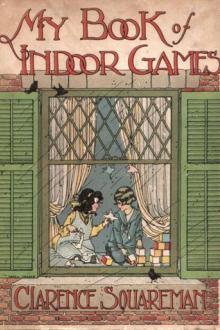
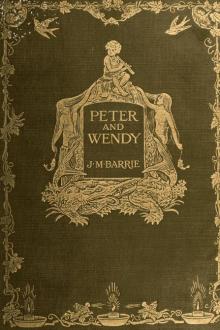
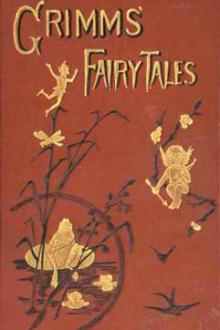
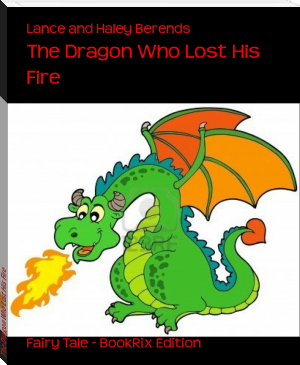
Comments (0)